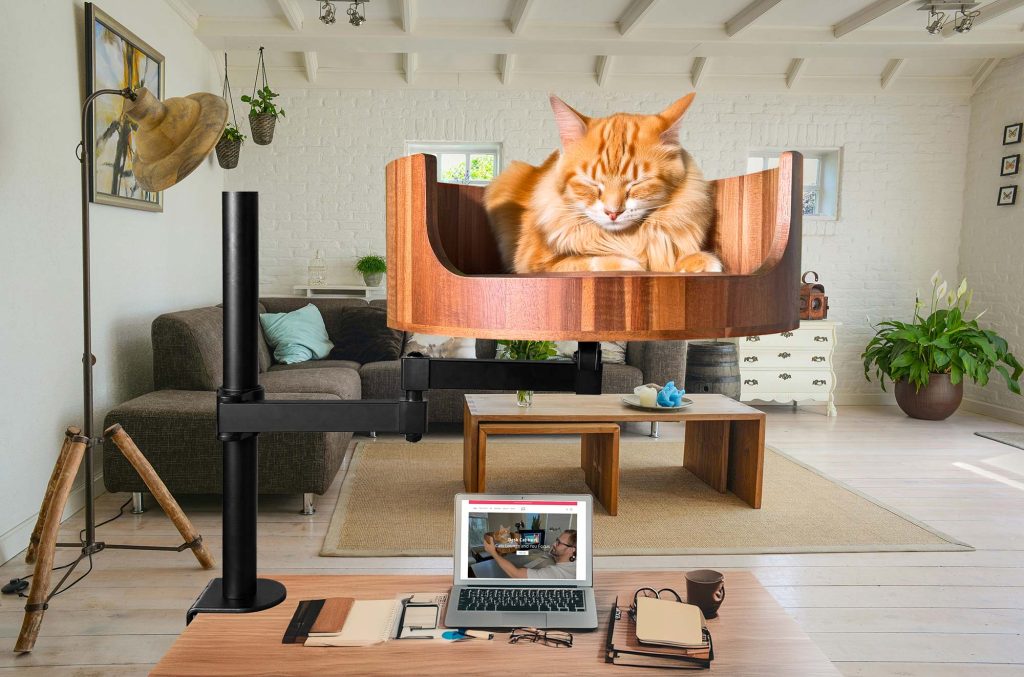Cat biting hair is a quirky behavior that some felines exhibit, leaving many cat owners puzzled and concerned. This peculiar habit can range from harmless grooming to potentially harmful biting, causing distress to both the cat and the owner. Understanding the reasons behind this behavior is crucial in order to address and manage it effectively.
In this article, we will delve into the mysterious world of cat biting hair, exploring the possible reasons why cats engage in this behavior. From stress and anxiety to medical issues and boredom, there are many potential triggers that could prompt a cat to start biting their own fur or that of their human companions. We will also provide practical tips and strategies for cat owners to help deter their feline friends from biting hair, as well as advice on when to seek professional help from a veterinarian or animal behaviorist. By shedding light on this enigmatic behavior, we hope to assist cat owners in better understanding and addressing their furry companion’s unique quirks.
1. Cats may bite or chew on their owners’ hair as a form of grooming, reminiscent of how they would groom their fellow felines.
2. This behavior could also be a way for cats to show affection or seek attention from their owners.
3. Cats may also bite hair due to stress, anxiety, or boredom, so it’s essential to provide them with enough mental and physical stimulation.
4. It’s crucial to establish boundaries with your cat to discourage this behavior if it becomes bothersome or painful.
5. Consulting with a veterinarian or animal behaviorist can help address any underlying issues causing your cat to bite hair.
Why do cats bite hair?
Cats may bite their owners’ hair for a variety of reasons. One possibility is that they are simply trying to play or show affection. Some cats see hair as a toy to pounce on or groom, much like they would with littermates. Additionally, cats have a strong instinct to groom themselves and their loved ones, so biting hair could be a way for them to mimic this behavior. In some cases, cats may bite hair out of anxiety or stress, using it as a coping mechanism similar to how humans bite their nails. It’s essential to observe your cat’s body language and overall behavior to understand the underlying reason for this quirky behavior.
How to prevent cats from biting hair
If your cat’s hair-biting behavior is causing discomfort or frustration, there are several steps you can take to prevent or manage it. One approach is to redirect their attention to a more appropriate toy or activity whenever they start biting hair. Providing interactive toys, scratching posts, or puzzle feeders can help keep them mentally stimulated and less likely to engage in this behavior. Additionally, ensuring your cat is getting enough exercise and playtime can help release any pent-up energy that may lead to hair-biting. If the behavior persists despite your efforts, consider consulting with a veterinarian or animal behaviorist for further guidance.
Case study: Cat biting hair as a sign of anxiety
In some instances, hair-biting behavior in cats can be a sign of underlying anxiety or stress. For example, a cat may start biting their owner’s hair excessively after a major change in the household, such as moving to a new home or introducing a new pet. This behavior could be a way for the cat to self-soothe or seek comfort in a challenging situation. By addressing the root cause of the anxiety, such as providing a safe space or implementing a calming routine, you may be able to reduce or eliminate the hair-biting behavior over time. It’s crucial to approach this situation with patience and understanding to help your cat feel secure and relaxed.
Frequently Asked Questions
Q: How can the Desk Cat Nest help with preventing cat biting hair?
The Desk Cat Nest provides a safe and cozy spot for your cat to lounge in, reducing their anxiety and boredom which are common triggers for hair biting behavior.
Q: Will my cat actually use the Desk Cat Nest?
Most cats are naturally curious and enjoy exploring new spaces, so they are likely to be intrigued by the Desk Cat Nest. However, it may take some time for your cat to adjust to using it.
Q: Is the Desk Cat Nest easy to clean?
Yes, the Desk Cat Nest is designed for easy cleaning. The removable cushion cover can be machine-washed, and the rest of the nest can be wiped down with a damp cloth.
Q: Can the Desk Cat Nest be used for multiple cats?
While the Desk Cat Nest is spacious enough for one cat, it may not be suitable for multiple cats to share unless they are particularly close and get along well.
Q: How durable is the Desk Cat Nest?
The Desk Cat Nest is made of high-quality materials that are durable and built to last. However, it’s important to monitor your cat’s behavior around the nest to ensure they are not excessively scratching or biting it.
In conclusion, the Desk Cat Bed is a valuable choice for cat owners dealing with the issue of cat biting hair. This innovative product provides a comfortable and safe space for cats to rest and groom themselves, reducing the likelihood of excessive grooming behavior that leads to hair biting. The elevated design of the Desk Cat Bed also helps to prevent hair ingestion and the risk of hairballs. Overall, investing in a Desk Cat Bed is a beneficial solution for promoting your cat’s well-being and reducing unwanted grooming habits.


